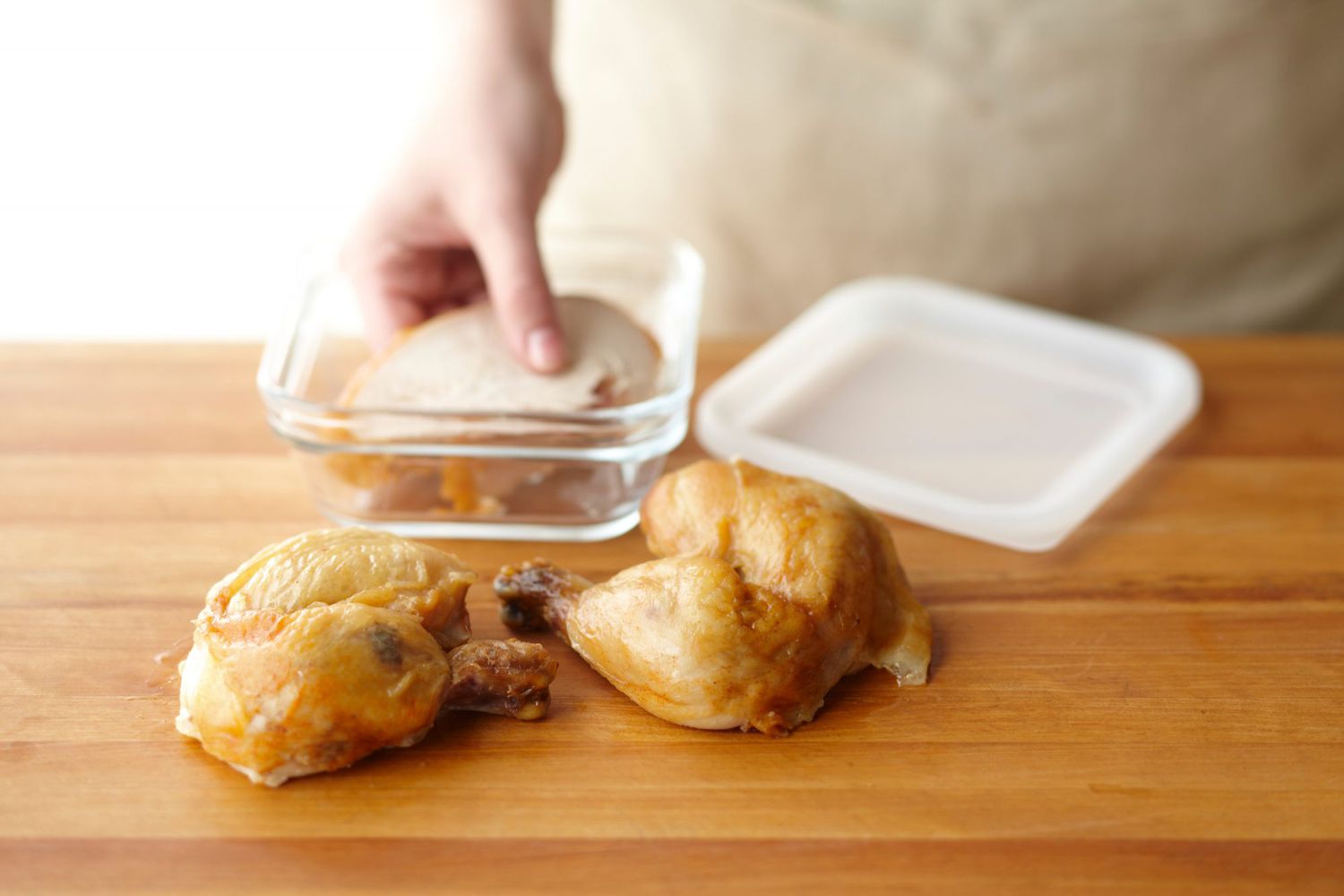

Articles
How To Store Cooked Chicken In Freezer
Modified: December 7, 2023
Learn the best methods for storing cooked chicken in the freezer with these helpful articles. Keep your chicken fresh and safe for future meals.
(Many of the links in this article redirect to a specific reviewed product. Your purchase of these products through affiliate links helps to generate commission for Storables.com, at no extra cost. Learn more)
Introduction
Freezing cooked chicken is an excellent way to extend its shelf life and ensure that it remains safe to consume for a longer period. Whether you have leftover chicken from a previous meal or you’ve cooked a large batch in advance, properly storing it in the freezer can preserve its flavor, texture, and nutritional value.
In this article, we will explore the importance of freezing cooked chicken, the necessary steps to prepare it for freezing, the recommended containers to use, and the proper techniques for thawing and reheating. We will also provide useful tips to help you store cooked chicken in the freezer effectively.
By following the guidelines outlined here, you can maintain the quality and taste of your cooked chicken while maximizing its storage lifespan, allowing you to enjoy it at your convenience.
Key Takeaways:
- Properly freezing cooked chicken preserves its taste, extends its shelf life, and reduces food waste, making meal planning more economical and convenient.
- Choosing the right containers, preparing the chicken for freezing, and following proper thawing and reheating techniques are essential for maintaining the quality and safety of frozen cooked chicken.
Read more: How To Store Chicken Stock In Freezer
Why Freezing Cooked Chicken is Important
Freezing cooked chicken serves several purposes, making it a crucial practice for those who want to minimize food waste and enjoy home-cooked meals later on. Here are some key reasons why freezing cooked chicken is important:
- Preserves freshness and taste: The freezing process helps to slow down the growth of bacteria and enzymes that can cause the chicken to spoil. By freezing cooked chicken promptly, you can lock in its freshness and flavors, ensuring that it retains its taste and texture when thawed and reheated.
- Extends shelf life: By placing cooked chicken in the freezer, you can significantly extend its storage life. While refrigeration only prolongs the freshness for a few days, freezing can keep the chicken safe to eat for several months. This allows you to cook large batches of chicken dishes in advance and store them for future use.
- Economical and convenient: Freezing cooked chicken can help make your meal planning more economical and convenient. Leftover chicken from previous meals can be frozen and used as a quick and easy ingredient for future recipes. It saves you time and money by reducing the need for frequent grocery shopping or ordering takeout.
- Reduces food waste: Freezing cooked chicken is an excellent way to minimize food waste. Instead of letting leftovers go to waste, freezing them ensures that they can be enjoyed later on. It is a sustainable practice that promotes responsible food consumption and helps protect the environment.
To reap the benefits of freezing cooked chicken, it is essential to follow proper storage techniques and guidelines. The next sections will walk you through the necessary steps to prepare the chicken for freezing and provide useful tips for storing it effectively.
Choosing the Right Containers for Freezing
When it comes to freezing cooked chicken, selecting the appropriate containers is crucial to maintain its quality and prevent freezer burn. Here are some factors to consider when choosing containers for freezing:
- Airtightness: It is important to use containers that have a tight-fitting lid or seal to prevent air from entering and freezer burn from occurring. Freezer-safe bags or containers with strong locking mechanisms are ideal for this purpose.
- Material: Opt for containers made of materials that are safe for freezing. Avoid using containers that may crack or break at low temperatures. Some suitable options include heavy-duty plastic containers, glass containers, or freezer-safe plastic bags.
- Size: Consider the portion sizes you will need in the future when choosing containers. Using smaller containers or individual portion-sized freezer bags allows for easier thawing and minimizes wastage.
- Stackability: Look for containers that can be stacked or nested neatly in the freezer. This helps to maximize the use of space and keeps your freezer organized.
- Labeling: Properly label each container with the date of freezing to ensure you can keep track of its freshness and avoid consuming expired chicken. It is also helpful to label the type of dish or recipe to easily identify it later.
When selecting containers for freezing, it’s essential to choose options that are designed specifically for freezer use. Improper containers can result in freezer burn or allow air to penetrate, leading to a deterioration in the quality of the cooked chicken.
Remember, the quality of the container plays a significant role in maintaining the taste, texture, and overall integrity of the frozen chicken. By investing in high-quality freezer-safe containers, you can ensure that your cooked chicken remains safe, flavorful, and ready to be reheated whenever you desire.
Preparing the Cooked Chicken for Freezing
Before freezing cooked chicken, it is important to properly prepare it to ensure its quality and safety during storage. Here are the steps to follow:
- Cool the chicken: Allow the cooked chicken to cool completely at room temperature before transferring it to the freezer. This helps prevent condensation from forming inside the container, which can lead to freezer burn.
- Divide into portions: If you have a large batch of cooked chicken, consider dividing it into smaller portions. This makes it easier to thaw and use only what you need in the future, minimizing wastage.
- Remove excess moisture: Pat the cooked chicken dry with a paper towel to remove any excess moisture. This helps prevent ice crystals from forming and preserves the texture of the chicken.
- Wrap or package: Place the cooled and dried chicken in airtight freezer-safe bags or containers. Alternatively, you can use heavy-duty aluminum foil or plastic wrap to wrap individual portions tightly.
- Label and date: Ensure each container or package is properly labeled with the date of freezing. This will help you keep track of its freshness and avoid consuming expired chicken in the future.
- Remove excess air: If using freezer bags, squeeze out as much air as possible before sealing to minimize the risk of freezer burn. For containers, make sure the lid is tightly sealed to prevent air from entering.
By following these preparation steps, you can ensure that your cooked chicken is properly stored for freezing. This will maintain its quality and make the thawing and reheating process much easier when you’re ready to use the frozen chicken.
To store cooked chicken in the freezer, allow it to cool completely, then transfer it to an airtight container or freezer bag. Label with the date and use within 3-4 months for best quality.
Freezing Cooked Chicken – Step by Step Process
Freezing cooked chicken correctly is essential to preserve its flavor, texture, and nutritional value. Follow these step-by-step instructions to ensure optimal results:
- Prepare the chicken: Cool the cooked chicken completely, and if necessary, divide it into smaller portions for easier storage and future use.
- Select freezer-safe containers: Choose airtight containers or freezer-safe bags that are suitable for freezing.
- Wrap or package the chicken: Place the cooled chicken into the containers, leaving some space at the top to allow for expansion. Alternatively, wrap individual portions tightly with heavy-duty aluminum foil or plastic wrap.
- Label the containers: Clearly label each container or package with the date of freezing and the type of chicken dish. This will help you identify the contents and keep track of their freshness.
- Remove excess air: Squeeze out as much air as possible from freezer bags before sealing them. For containers, ensure the lids are tightly secured to prevent air from entering.
- Organize and store: Place the containers or packages of cooked chicken in the freezer, making sure they are arranged in an organized manner for easy access.
- Set the temperature: Ensure that your freezer is set at or below 0°F (-18°C) to maintain the quality and safety of the frozen chicken.
It is important to note that cooked chicken should be frozen as soon as possible after cooking to maintain its freshness. Avoid leaving it at room temperature for an extended period, as this can lead to bacterial growth and diminish the quality of the chicken.
By following these step-by-step instructions, you can ensure that your cooked chicken is properly frozen and easily accessible for future use. When you’re ready to enjoy your frozen chicken, follow the steps for thawing and reheating to ensure safe consumption and delicious results.
Read more: How To Store Chicken In Freezer
Thawing and Reheating Cooked Frozen Chicken
Thawing and reheating cooked frozen chicken properly is essential to ensure food safety and maintain its taste and texture. Here are the recommended steps to thaw and reheat cooked frozen chicken:
- Thawing in the refrigerator: The safest way to thaw cooked frozen chicken is to transfer it from the freezer to the refrigerator. Place the frozen chicken in a leak-proof container or on a plate to catch any dripping juices. Allow it to thaw slowly in the refrigerator overnight or for approximately 24 hours. This method ensures even and controlled thawing.
- Thawing in cold water: If you need to thaw the chicken more quickly, you can submerge the sealed freezer bag or container in cold water. Change the water every 30 minutes to prevent it from becoming warm. It usually takes about 1-3 hours to thaw using this method. Be sure to cook the chicken immediately once it is fully thawed.
- Reheating the chicken: Once the cooked frozen chicken is thawed, you can reheat it using one of the following methods:
- Oven or toaster oven: Preheat the oven to 350°F (175°C). Place the chicken in an oven-safe dish, cover it with aluminum foil, and heat for about 20-30 minutes until it reaches an internal temperature of 165°F (74°C).
- Microwave: Place the thawed chicken on a microwave-safe plate and cover it with a microwave-safe lid or microwave-safe plastic wrap. Heat it on medium power for 2-3 minutes. Check the temperature to ensure it is fully heated to 165°F (74°C).
- Stovetop: Add a little oil or butter to a non-stick skillet or frying pan. Cook the thawed chicken over medium heat until it is heated throughout. Make sure to stir or flip the chicken occasionally to prevent it from sticking or burning.
- Check the temperature: Regardless of the reheating method used, it is crucial to check the internal temperature of the chicken using a meat thermometer. Ensure it reaches a minimum of 165°F (74°C) to ensure it is safe to eat.
Remember to handle thawed and reheated chicken with care to prevent cross-contamination by avoiding contact with raw ingredients. Discard any leftovers that have been left at room temperature for more than 2 hours.
By following these steps, you can safely thaw and reheat cooked frozen chicken, enjoying a flavorful and satisfying meal. Be sure to consume reheated chicken within 2-3 days and discard any leftovers that have been reheated multiple times.
Tips for Storing Cooked Chicken in the Freezer
Properly storing cooked chicken in the freezer is essential to maintain its quality and ensure its long-term safety. Here are some useful tips to help you store cooked chicken effectively:
- Cool the chicken completely: Allow the cooked chicken to cool down to room temperature before placing it in the freezer. This helps prevent condensation and ice crystals from forming, which can impact the texture and flavor of the frozen chicken.
- Divide into smaller portions: If you have a large batch of cooked chicken, divide it into smaller portions before freezing. This allows you to thaw only what you need for a particular meal, avoiding unnecessary wastage.
- Use airtight containers: Opt for airtight containers or freezer-safe bags to prevent freezer burn and maintain the quality of the chicken. Ensure the containers are properly sealed to keep out air and moisture.
- Label and date: Clearly label each container or package with the date of freezing and the type of chicken dish. This will help you keep track of its freshness and easily identify different recipes or preparations.
- Arrange and organize: Place the containers or packages in an organized manner in the freezer. Stack them neatly or use storage bins to efficiently utilize the available space. This makes it easier to locate specific portions and helps prevent freezer clutter.
- Use the FIFO method: FIFO stands for “First In, First Out.” Arrange your frozen chicken in a way that allows you to use the oldest portions first. This ensures that you consume the frozen chicken before it reaches its expiration date.
- Keep a freezer inventory: Consider keeping a list or taking a photo of the contents in your freezer. This will help you keep track of what you have and avoid buying or freezing excessive amounts of chicken.
- Store at the right temperature: Ensure your freezer is set at or below 0°F (-18°C) to maintain the quality and safety of the frozen chicken. Regularly check the temperature to prevent fluctuations.
By following these tips, you can effectively store cooked chicken in the freezer and enjoy its freshness and flavor whenever you desire. Proper storage techniques will help you minimize food waste, save time, and ensure that you always have a convenient and delicious protein source on hand.
Conclusion
Freezing cooked chicken is an excellent way to prolong its shelf life, reduce food waste, and ensure easy access to flavorful meals in the future. By following the proper steps and utilizing the right containers, you can preserve the taste, texture, and nutritional quality of the chicken.
Remember to adequately cool the cooked chicken before freezing it and divide it into portion-sized servings to prevent unnecessary wastage. Choose airtight containers or freezer-safe bags to protect the chicken from air and moisture, which can cause freezer burn. Properly labeling and organizing the frozen chicken will help you keep track of its freshness and easily locate specific portions as needed.
When thawing and reheating cooked frozen chicken, ensure that it is fully and safely heated to an internal temperature of 165°F (74°C) to prevent any foodborne illnesses. Use methods such as refrigerator thawing or cold water thawing to thaw the chicken safely before reheating it using the oven, microwave, or stovetop.
By following these guidelines and incorporating these tips, you can make the most out of your freezer storage and enjoy delicious cooked chicken meals at your convenience. Don’t forget to regularly check and maintain the temperature of your freezer to keep the chicken safe and well-preserved.
In conclusion, freezing cooked chicken is a practical and economical solution for extending its shelf life and reducing food waste. With proper preparation, storage, and reheating techniques, you can enjoy the convenience and benefits of having readily available, flavorful cooked chicken whenever you need it.
Frequently Asked Questions about How To Store Cooked Chicken In Freezer
Was this page helpful?
At Storables.com, we guarantee accurate and reliable information. Our content, validated by Expert Board Contributors, is crafted following stringent Editorial Policies. We're committed to providing you with well-researched, expert-backed insights for all your informational needs.
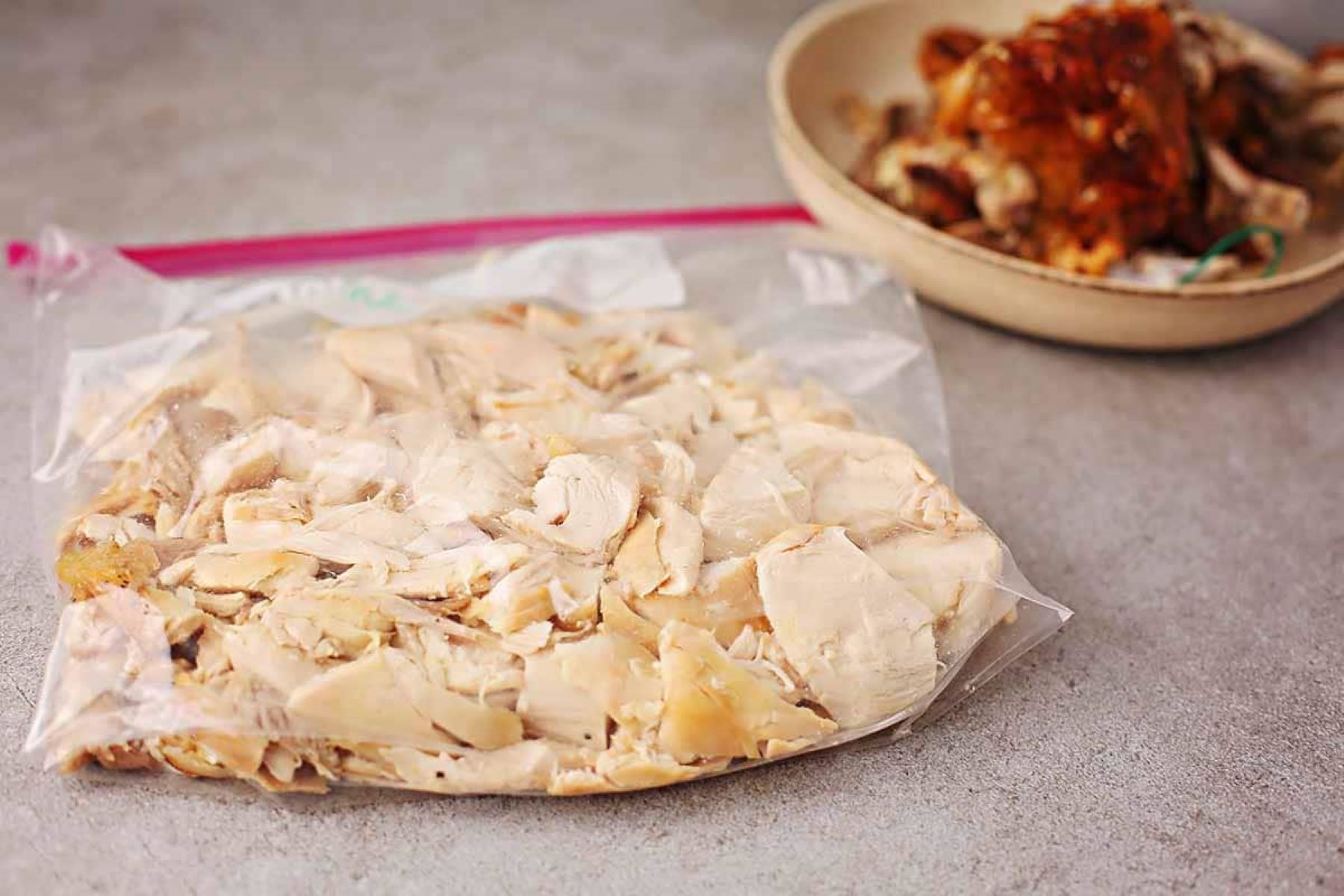
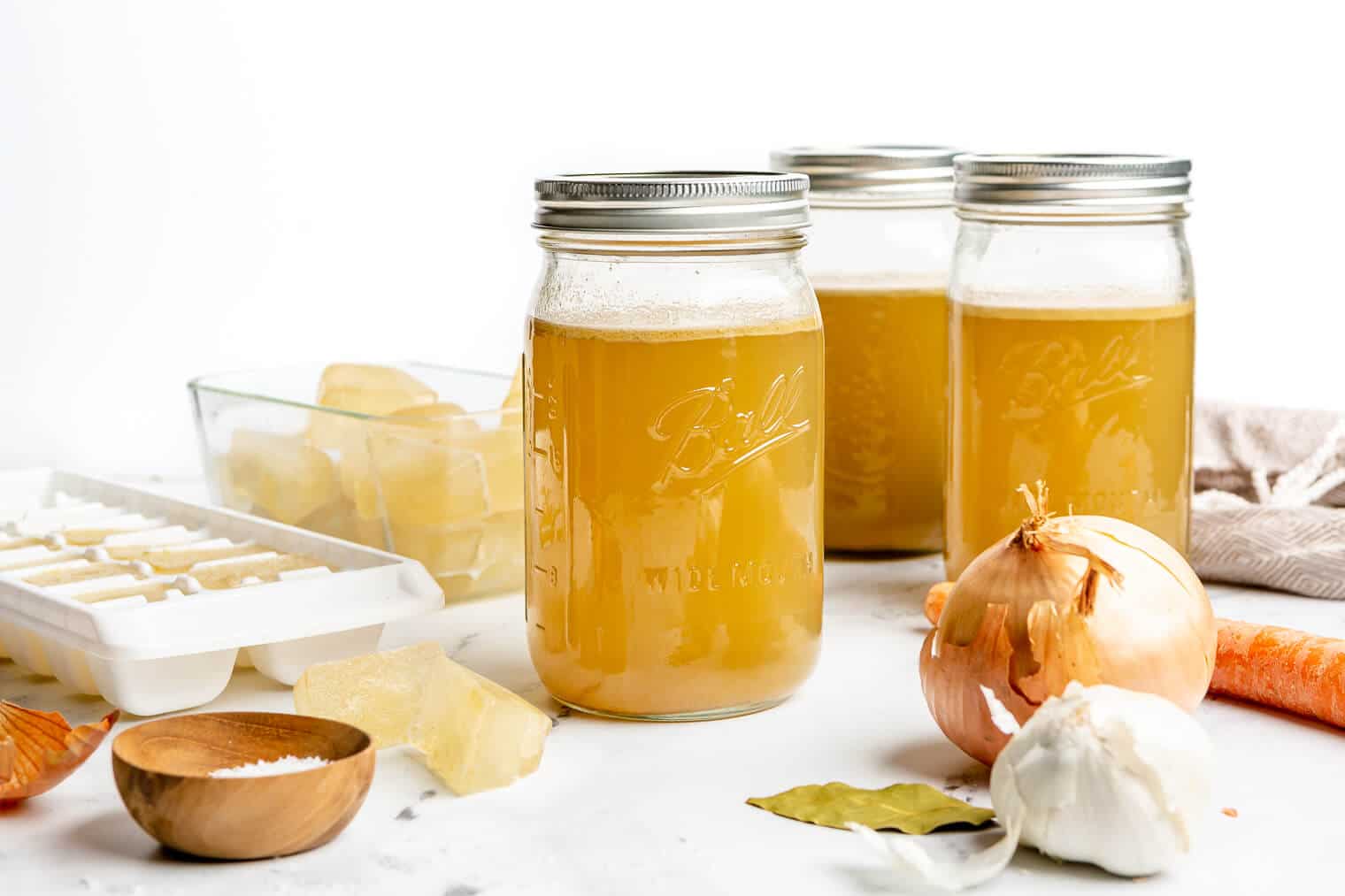
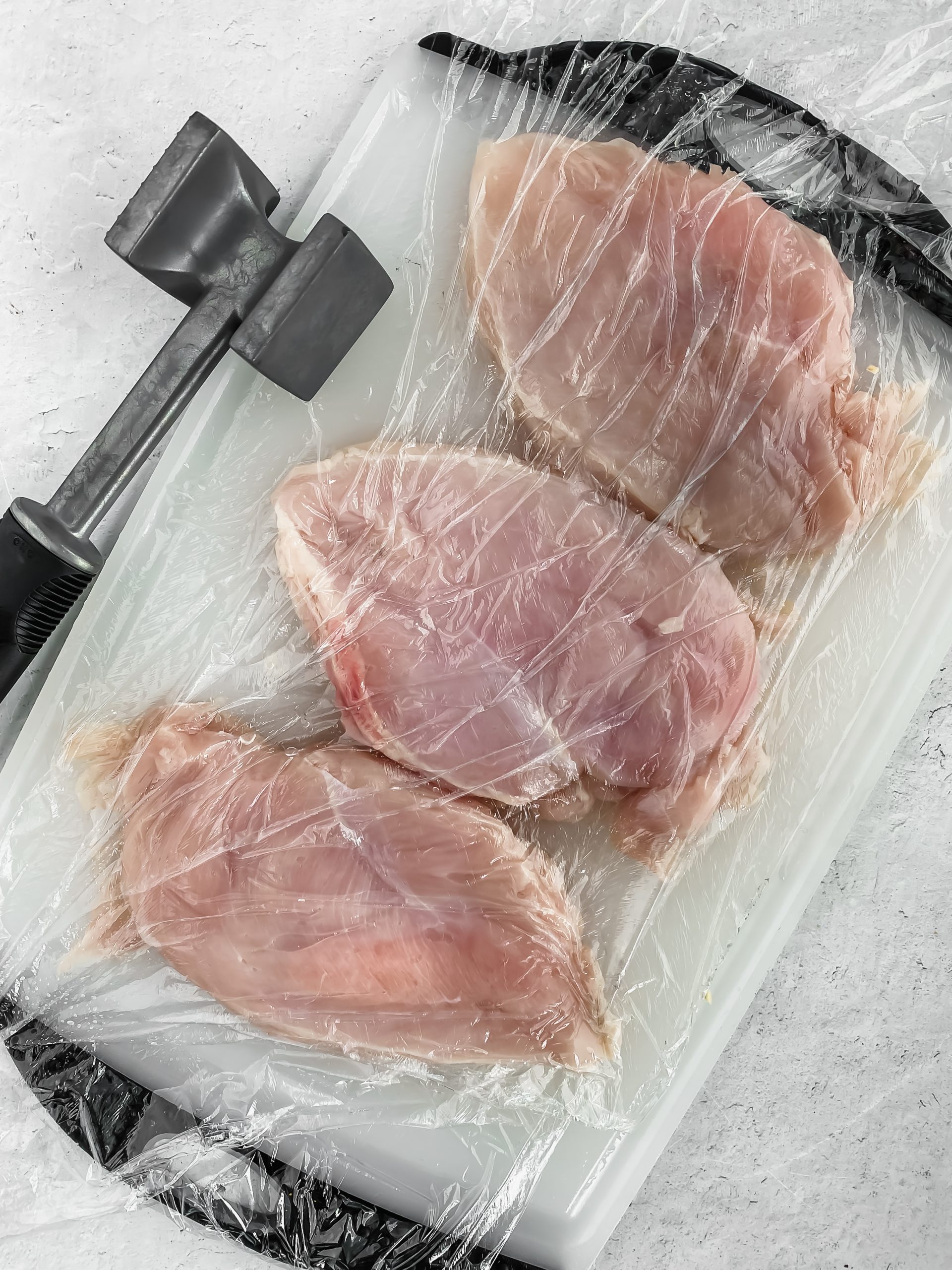
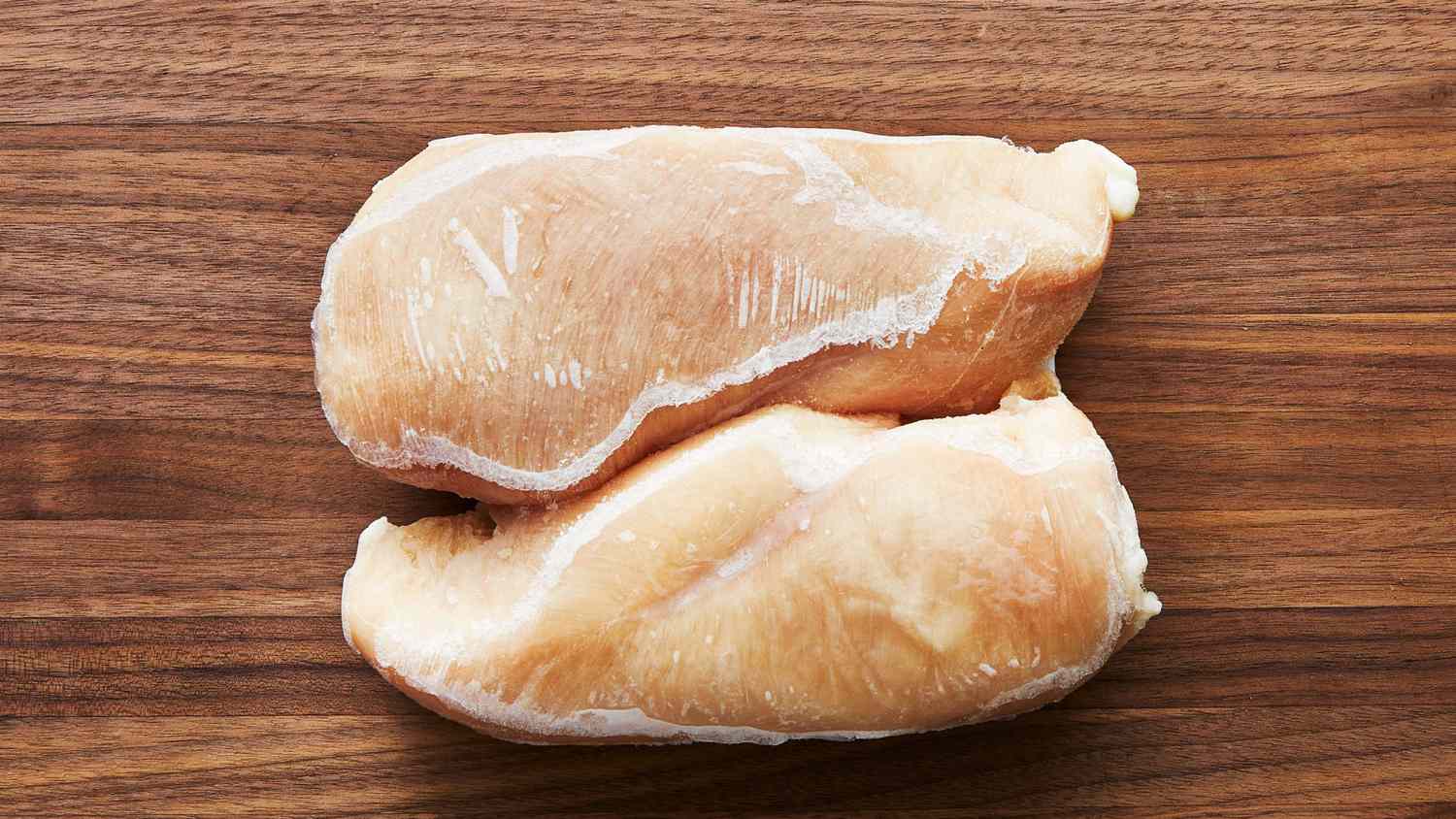
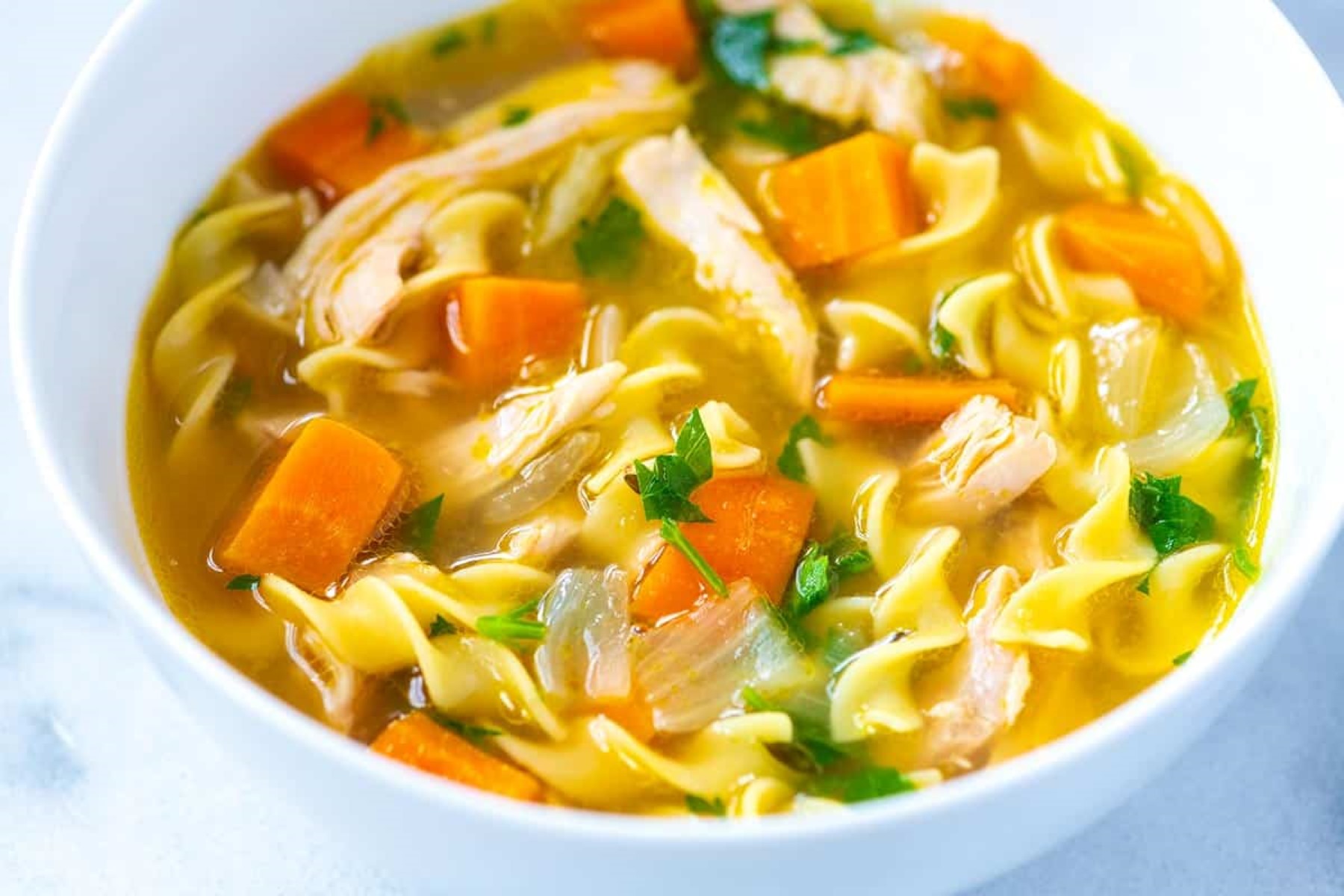
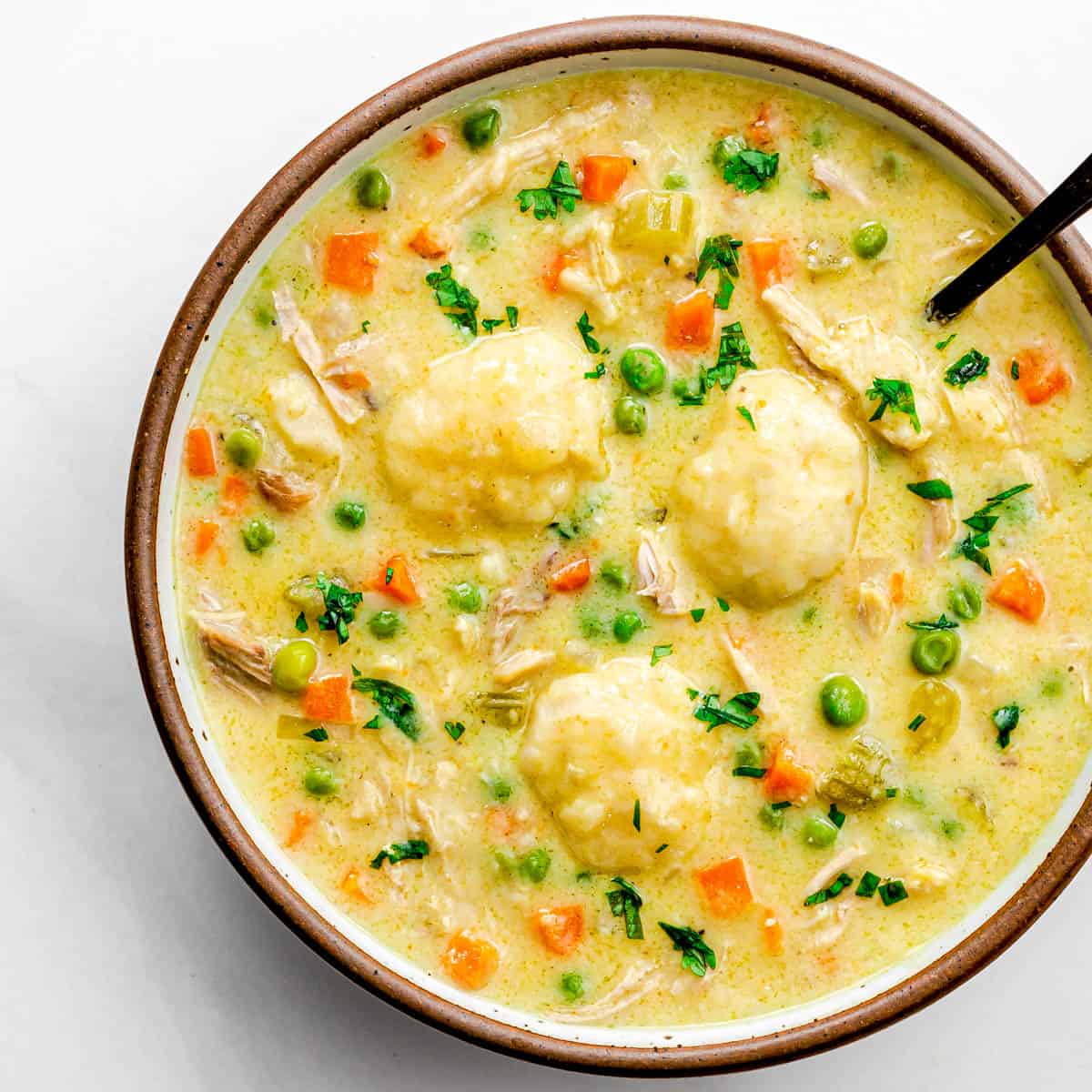
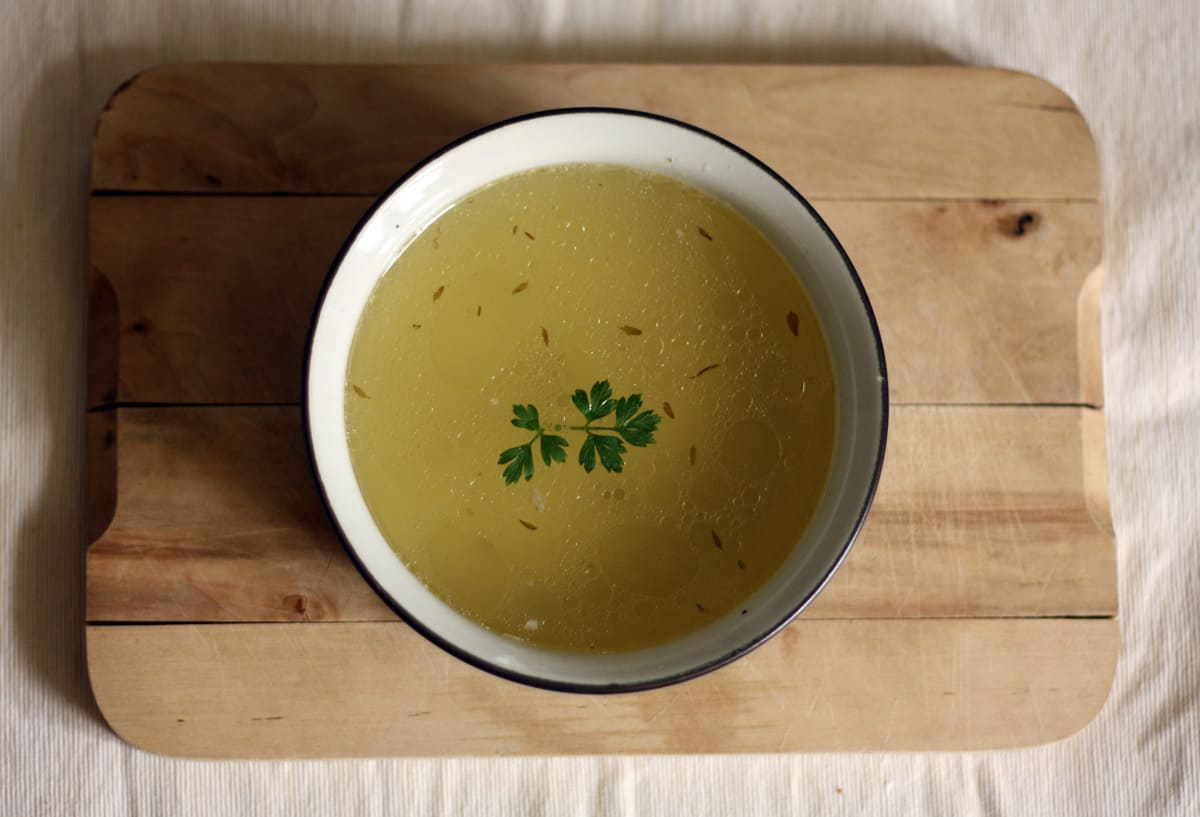
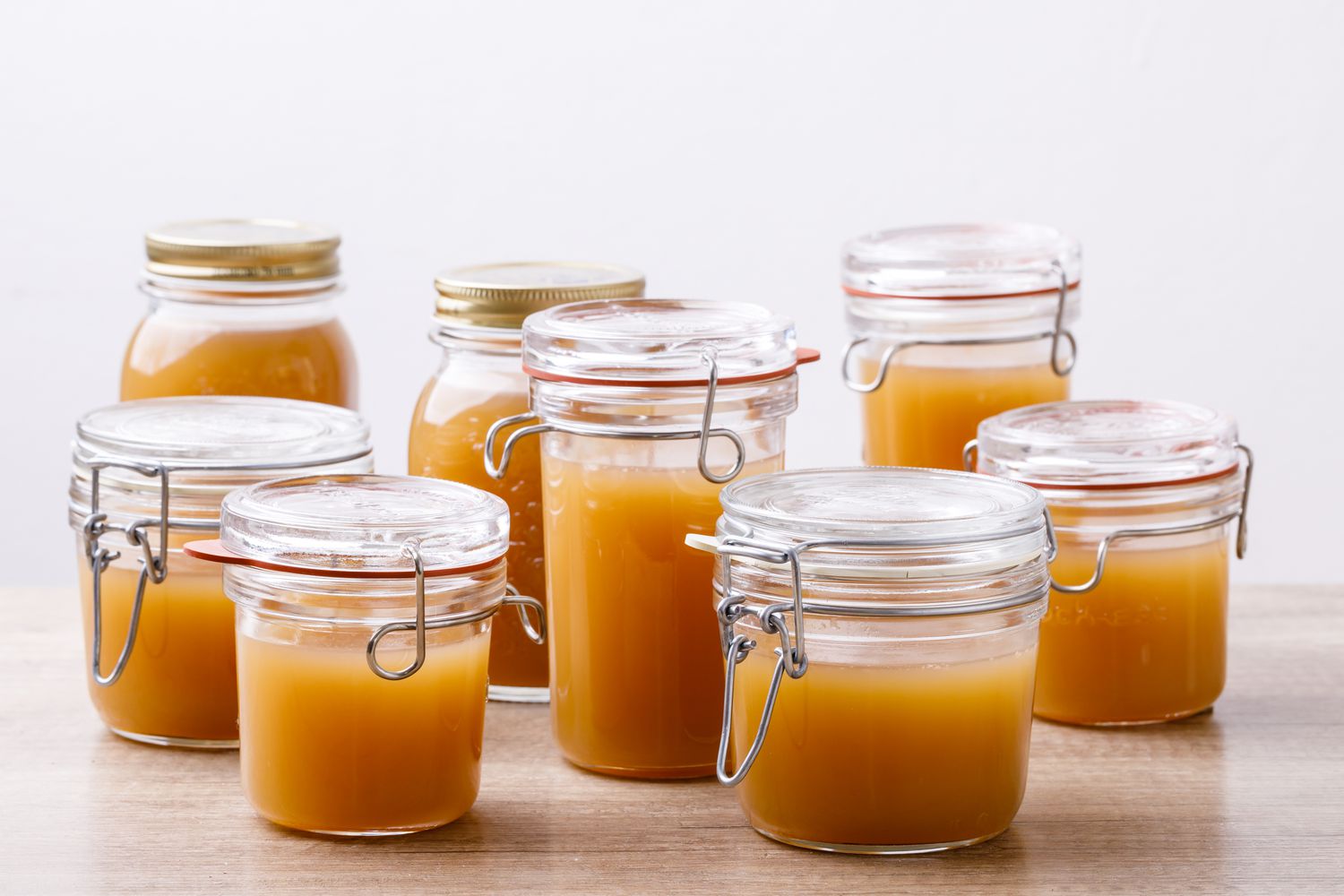
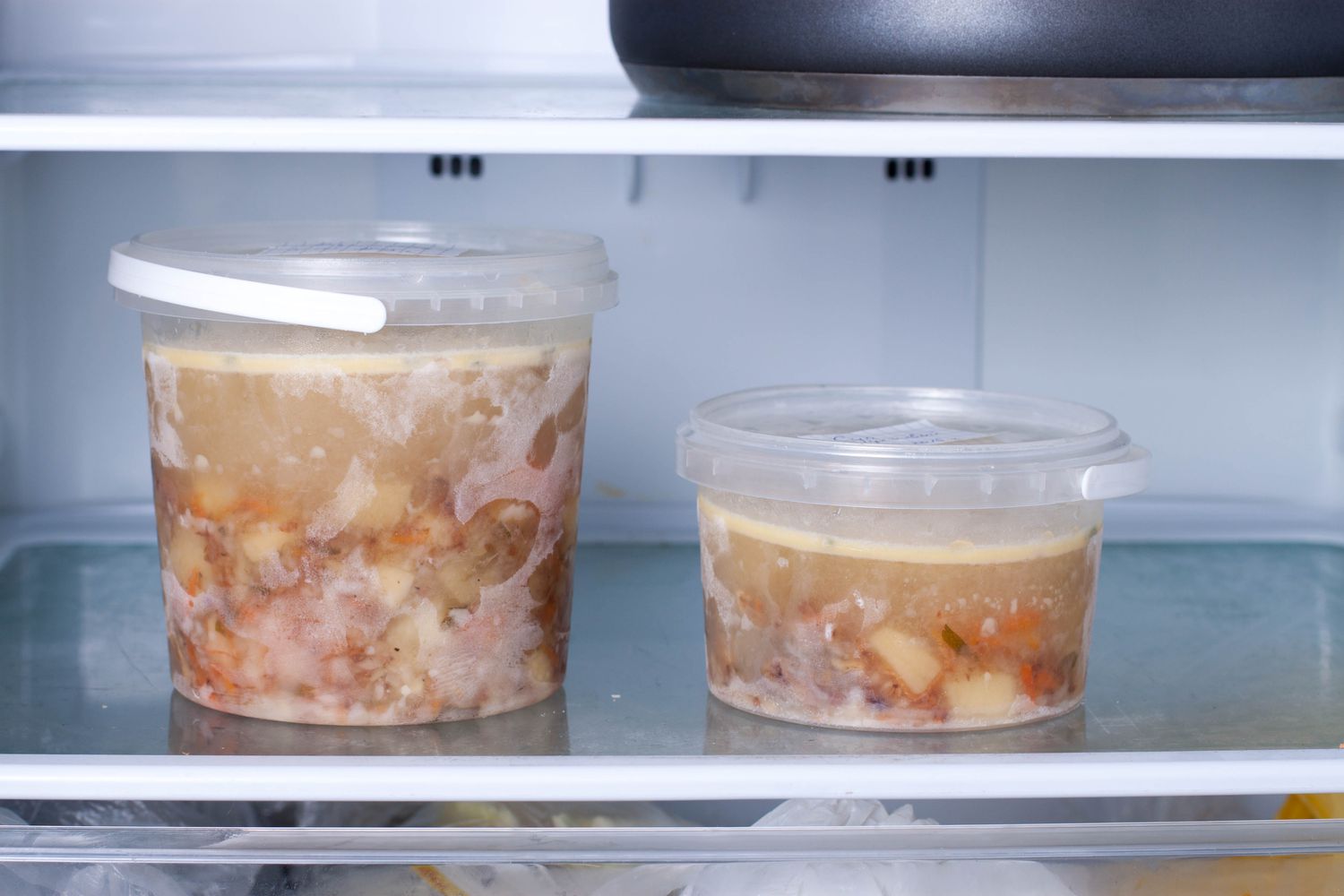
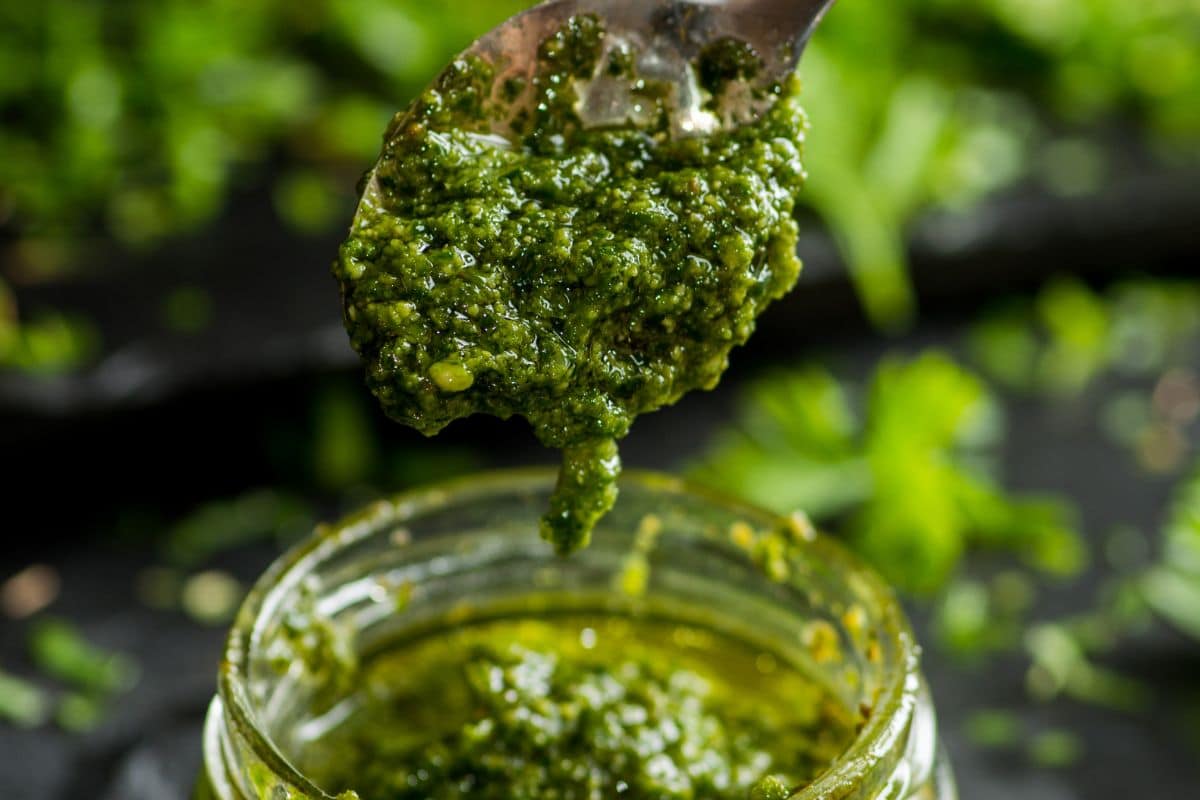
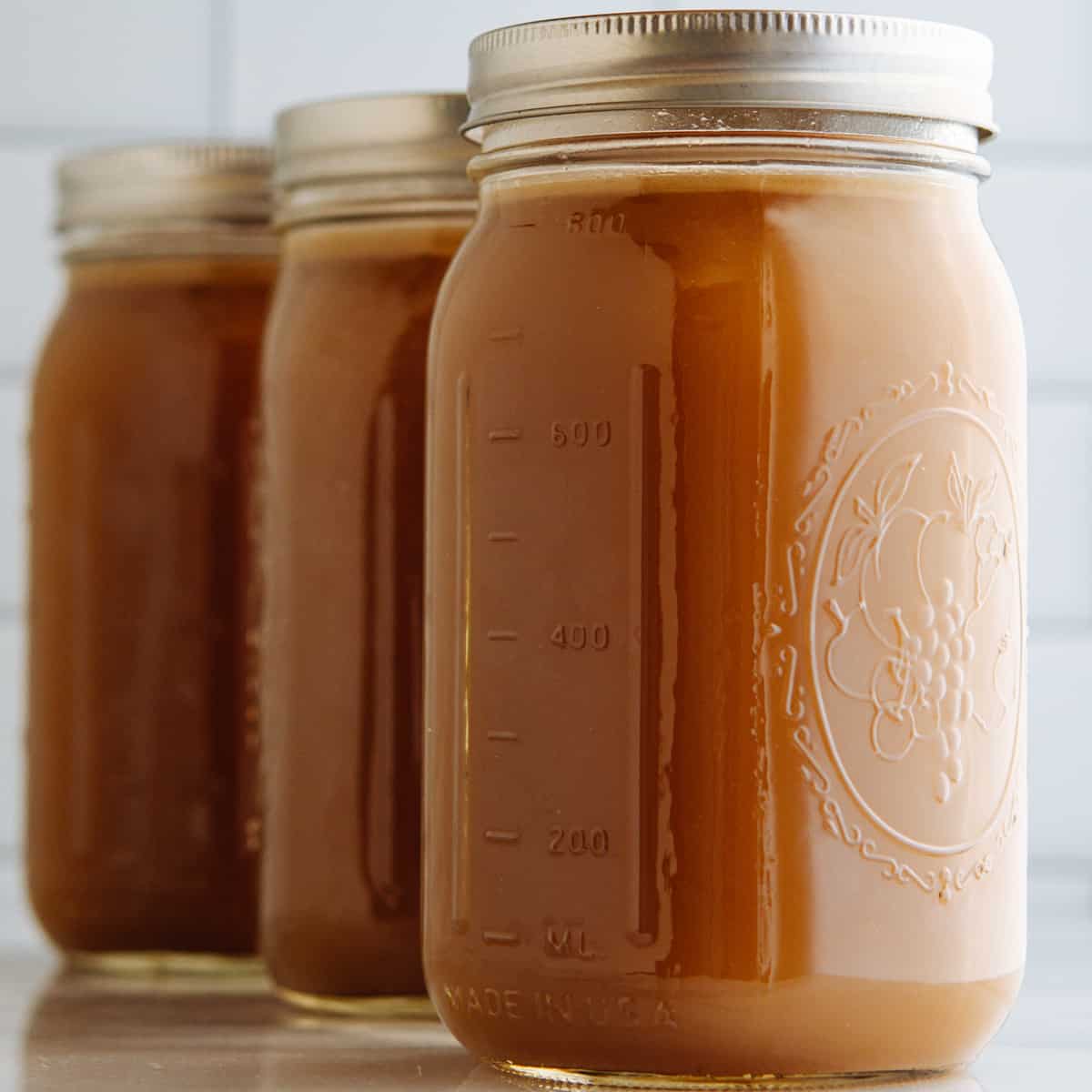
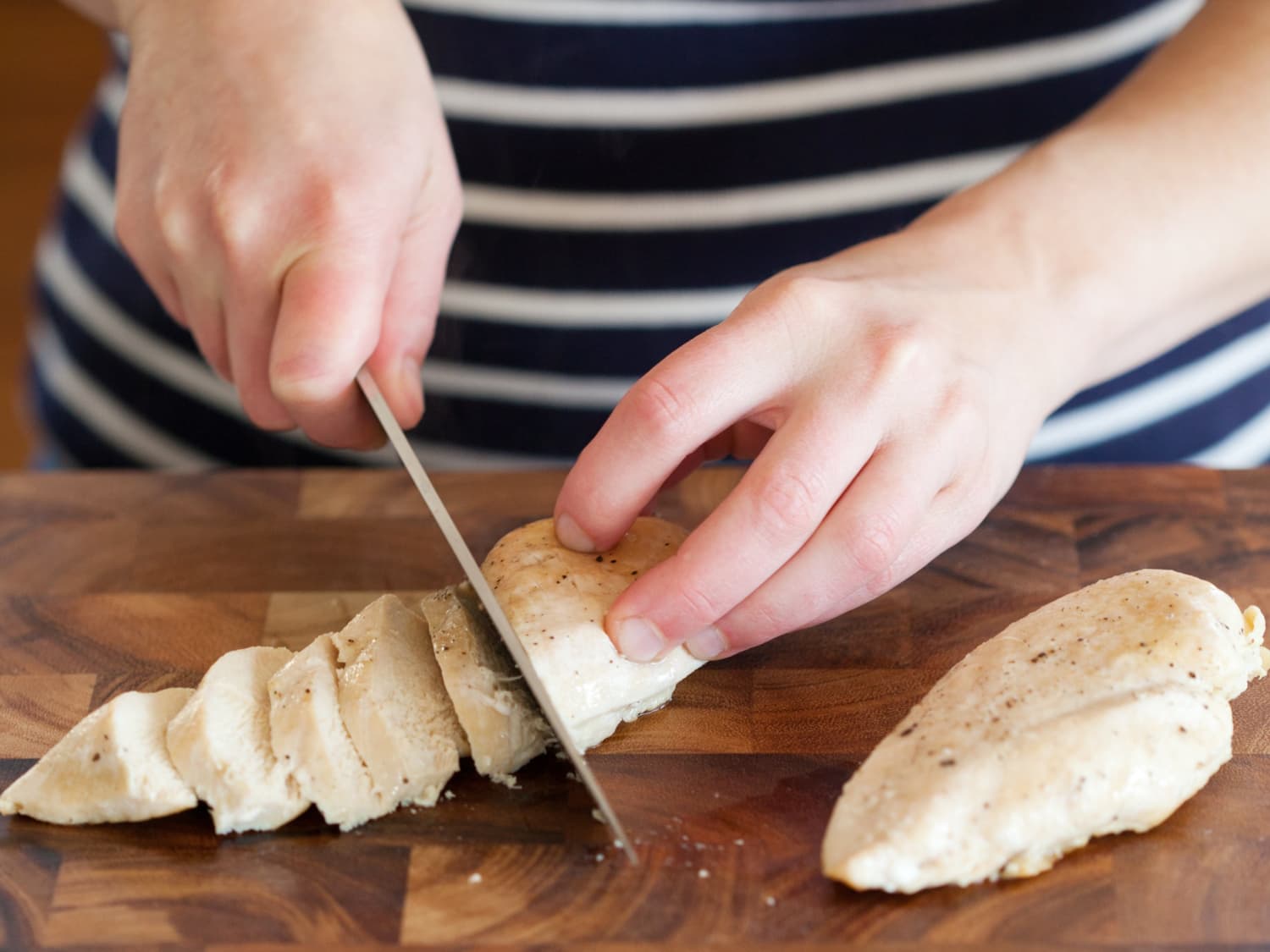
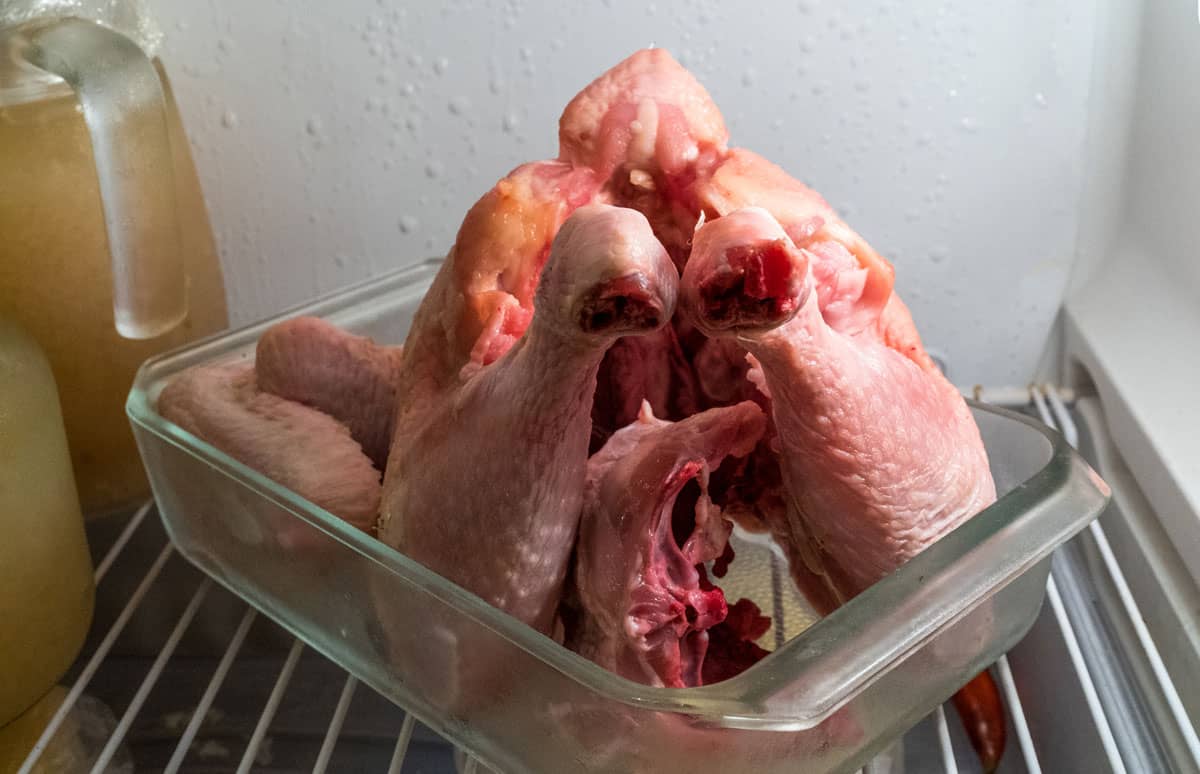
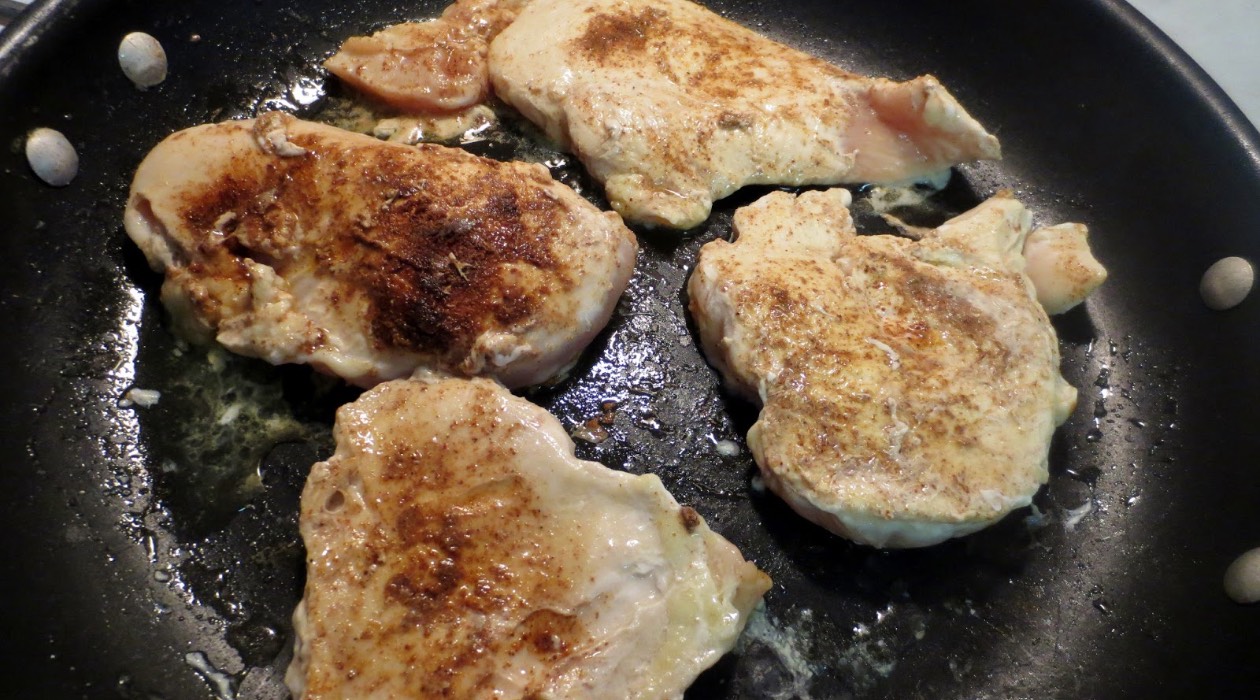

0 thoughts on “How To Store Cooked Chicken In Freezer”